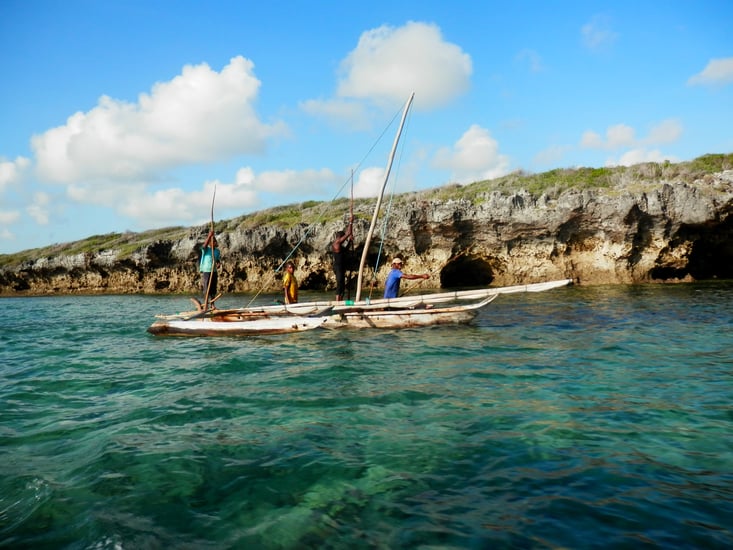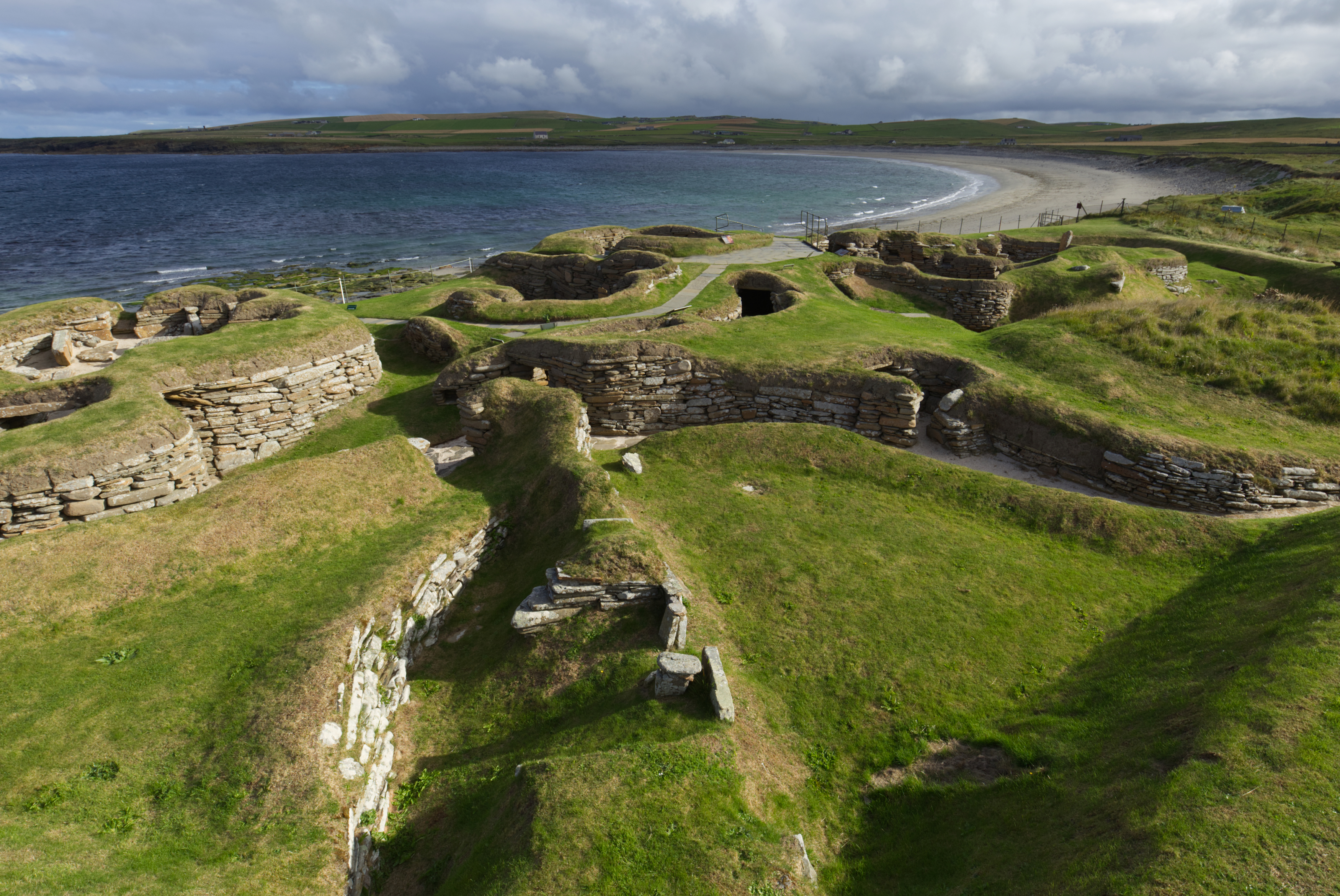Series: Heritage and Our Sustainable Future
Issue 2; 17th June 2021
Brief reports are released throughout the year. Check out the complete* series below!
*subject to release date
ISSN 2752-7026
01
1 Climate change is of global concern, affecting communities worldwide, and their heritage, in different ways.
Climate change impacts not only on communities’ livelihoods, food security, and well-being, but also on the richness and diversity of heritage assets and values. It is a growing threat to UNESCO World Heritage (WH) properties worldwide, many of which are experiencing damage, degradation and other negative consequences.
2Cultural heritage, particularly intangible heritage, is a source of resilience and an asset supporting communities in climate action.
Traditional and Indigenous knowledge, practices, social customs, ethical values, belief systems, rituals, and world-views all offer communities resilient approaches and guidance in adapting to a changing climate and assist in mitigating its effects.
3Cultural heritage conservation and management, community resilience, and climate action should be considered in a single framework.
Climate adaptation, resilience, and traditional knowledge and practices are interrelated and should be comprehensively integrated into heritage research and methodologies, conservation approaches, and management processes.

02
1 Climate change is of global concern, affecting communities worldwide, and their heritage, in different ways.
2Cultural heritage, particularly intangible heritage, is a source of resilience and an asset supporting communities in climate action.
3Cultural heritage conservation and management, community resilience, and climate action should be considered in a single framework.

03
Climate change is having catastrophic impacts on both human and natural systems, including cultural and natural heritage.
Cultural heritage is a resource which can contribute to climate change mitigation.
Communities that have made the smallest contribution to climate change in terms of their carbon footprint are often on the frontlines of its impact.
Communities all around the world have shown a high capacity to adapt to climate change. Empathy, social cohesion, and traditional knowledge and practices are crucial aspects for the implementation of climate adaptive approaches and mitigation strategies.
Formal heritage management systems often relegate to a minor role traditional systems and Indigenous and local knowledge and practices that have potential as assets in addressing climate change.
Combining human and science-based expertise and community practices is fundamental to promoting innovative heritage approaches and methodologies for tackling the impacts of climate change.

04
Understanding the relationship between food heritage, sustainable farming practices, and future food choices is a particularly crucial development issue facing humanity in the context of climate change. Using oral history, the Changing Farming Lives project documented how women small farmers in southern India maintain cultural heritage and traditional knowledge relating to millets so as to ensure food security and agricultural resilience in the face of a warming local climate. At the heart of these practices is their repeated seed-saving of heirloom, or heritage, finger millet varieties over generations. As a result, they acquire the knowledge that enables the selection of seeds from plants that are more resistant and adaptable to changing weather conditions. Farmers typically intercrop millets with legumes and pulses ensuring nutritional food diversity and the maintenance of local food culture and agro-ecological resilience.
Another important aspect of heritage is the farmers’ intimate knowledge of the 27 different rains established by ancient Indian astronomy, which they still use to forecast weather and to guide the sequence of their tilling and sowing activities. Moreover, farming ways of life remain nourished and sustained by wider systems of folk religious faith which represent another aspect of intangible heritage. Farming and food-centred activities typically blend the secular and the spiritual, involving rituals and performances that reach out to the divine as good crops and food provision are ultimately believed to be the consequences of divine blessing.
Dr Sandip Hazareesingh, Faculty of Arts and Social Sciences, Open University (UK)
Climate change is one of the most significant risks for UNESCO World Heritage properties worldwide, including many African heritage sites. For example, in Kilwa Kisiwani and Songo Mnara (Tanzania), the Indian Ocean sea level rise and increasingly intense storm activity are causing the loss of archaeological deposits and land, exacerbating other socio-economic and ecological stresses, including land management practices. Similarly, the Sukur Cultural Landscape (Nigeria) is threatened by changing rainfall patterns, windstorms and reduced vegetation cover which are impacting agricultural production and the availability of culturally important traditional building material. The African World Heritage Fund joined forces with Climate Heritage Network members and local partners and stakeholders to increase local capacity to adapt to these threats by testing the Climate Vulnerability Index (CVI) in Africa. This innovative approach aims to assess the physical and ecological risks due to the impacts of climate change on cultural heritage sites and the economic, social and cultural consequences for the sites and their associated communities. Remote learning techniques and hands-on workshops were developed in the above-mentioned WH properties to provide foundational training to African heritage professionals and address the gap that exists in understanding climate impacts on cultural heritage in Africa, while creating longer-term capacity within the African heritage community.
Dr Albino Jopela, Head of Programmes, African World Heritage Fund (AWHF)
The Heart of Neolithic Orkney (HONO) is a UNESCO World Heritage property comprising four Neolithic monuments on the Orkney island archipelago off northern Scotland. Together, the monuments bear testimony to a cultural tradition which flourished 5,000–4,000 years ago, including evidence for domestic life, ceremonial expression and death and burial. In 2019, thanks to the ICOMOS Climate Change and Heritage Working Group, the HONO management partners worked with James Cook University (Australia) and the Union of Concerned Scientists on the global cultural pilot of the Climate Vulnerability Index (CVI). A three-day workshop with a range of participants (50% based on Orkney) assessed the key climate drivers and their impact on the Outstanding Universal Value (OUV) of the site as well as the economic, social and cultural dependency of its associated community. The conclusions were that the site had a high vulnerability to the impacts of climate change, but that its community vulnerability was moderate, recognising the high adaptive capacity locally. The results of the workshop are feeding into the current revision of the site’s Management Plan. This will recognise that climate change mitigation and adaptation must be woven throughout the Plan, which will seek flexible delivery and be proactive rather than reactive.
Alice Lyall, Deputy Head of World Heritage & Heart of Neolithic Orkney WH Site Coordinator; Dr Rebecca Jones, Head of Archaeology and World Heritage, Historic Environment Scotland (UK)

Contacts
UK National Commission for UNESCO
[email protected]
Prof Stuart Taberner, Director of the Frontiers Institute, and Principal Investigator at PRAXIS, University of Leeds, UK
Dr Francesca Giliberto, PRAXIS’ Post-Doctoral Research Fellow on Heritage for Global Challenges, University of Leeds (UK); Helen Maclagan OBE, Former Vice-Chair and Non-Executive Director, UK National Commission for UNESCO.
Dr Sandip Hazareesingh, Faculty of Arts and Social Sciences, Open University (UK); Dr Albino Jopela, Head of Programmes, African World Heritage Fund (AWHF); Alice Lyall, Deputy Head of World Heritage & Heart of Neolithic Orkney WH Site Coordinator; Dr Rebecca Jones, Head of Archaeology and World Heritage, Historic Environment Scotland (UK)
Matilda Clark, Project Officer, UK National Commission for UNESCO; Matthew Rabagliati, Head of Policy, Research and Communications, UK National Commission for UNESCO.